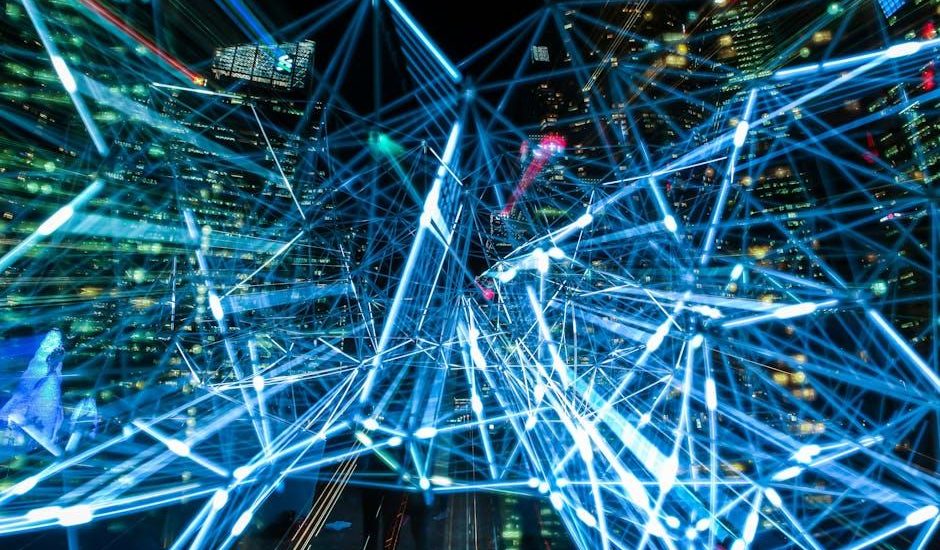



In the ever-evolving landscape of digital marketing, the rise of artificial intelligence (AI) is set to revolutionize traditional practices, particularly in the realm of search engine optimization (SEO). As businesses increasingly turn to advanced algorithms and machine learning to enhance their online presence, the conventional SEO agency model faces unprecedented challenges. But what does this shift mean for the future of SEO services? In this article, we will explore the myriad ways AI is reshaping the industry, dismantling outdated strategies, and redefining the roles of both agencies and marketers.From automated content creation to predictive analytics,join us as we delve into the intricate interplay between technology and marketing,uncovering the implications of a world where AI takes the helm and traditional approaches must adapt or risk obsolescence.
The introduction of artificial intelligence into search engines has radically shifted not just how search functions, but also how users approach their queries. Rather than rigidly following keywords, search engines are now learning to recognize user intent, adapting to the context and behavior behind the search. This AI-driven conversion means that search results are more personalized and relevant, honing in on what the user is really looking for, rather than just matching keywords.Users are also becoming more refined in their search behavior, employing longer, more conversational queries as they expect search engines to understand the nuances of their questions.
As AI continues to evolve, SEO strategies tailored around traditional methods may begin to lose their efficacy. The focus is shifting towards a deeper understanding of semantic search, where search engines leverage AI tools to analyze everything from content quality to user engagement metrics. Traditional SEO agencies may find themselves at a crossroads, needing to adapt quickly or risk obsolescence. This begs the question of how the SEO landscape will look in the near future. A potential framework for understanding this evolution is outlined in the table below, highlighting crucial areas where AI is making a difference:
| Traditional SEO Focus | AI-Driven SEO Focus |
|---|---|
| Keyword density | User intent and context |
| Backlink quantity | content authority and relevance |
| Static content | Dynamically updated facts |
| Crawlability and indexing | User engagement metrics |

As AI technologies continue to evolve, SEO strategies must pivot to align with the capabilities of AI-driven algorithms. Traditional methods reliant on static keyword placements and meta tags are now insufficient to achieve visibility in an AI-dominated landscape. To thrive, SEO professionals should focus on creating high-quality content that resonates with user intent. Implementing adaptive tactics such as a comprehensive understanding of semantic search, natural language processing, and user behavior insights can lead to enhanced engagement and value.
In practice,embracing AI tools can automate data analysis and provide actionable insights,allowing SEO experts to focus on creative problem-solving. Consider integrating various AI-driven applications to streamline your approach:
| Traditional SEO Practices | AI-Driven SEO Approaches |
|---|---|
| Keyword Density Focus | User Intent and context Understanding |
| Manual Link Building | Automated and Predictive Link Analysis |
| Rigid Content Structures | Adaptive and Dynamic Content Creation |

In the rapidly evolving digital landscape, harnessing the power of artificial intelligence has become pivotal for content creators seeking to enhance user engagement. By utilizing AI-driven tools, creators can analyze audience interactions and preferences, delivering personalized content that resonates deeply. These tools offer capabilities such as:
Moreover, the integration of AI in content creation allows for real-time feedback, empowering creators to pivot strategies seamlessly based on performance metrics. For instance,AI can help identify trending topics and provide insights into the best formats to enhance user interaction. The following table illustrates the comparative advantages of traditional methods versus AI-enhanced strategies in content creation:
| Traditional Methods | AI-Enhanced Strategies |
|---|---|
| Manual Keyword Research | Automated keyword Suggestions |
| static Content Scheduling | Dynamic Content Adjustment |
| Post-publishing Analysis | Real-Time User engagement Tracking |

As traditional SEO practices evolve, agencies are finding themselves at a crossroads where adapting to artificial intelligence can no longer be seen as optional but rather as essential for longevity. Embracing AI tools allows agencies to shift from manual optimization to automated, data-driven decisions, enhancing efficiency and accuracy. Key benefits of integrating AI into SEO strategies include:
Agencies that harness AI not only streamline their workflow but also empower their teams to focus on strategic initiatives rather than mundane tasks. This shift from reactive to proactive SEO practices opens a new realm of possibilities, where data fuels creativity and storytelling.To illustrate the potential impact of AI on traditional SEO models, consider the following comparison:
| Traditional SEO Approach | AI-Enhanced SEO Approach |
|---|---|
| Manual keyword tracking | Automated trend analysis |
| Time-consuming content audits | Instant optimization suggestions |
| Static reporting | Dynamic performance insights |
As we stand at the threshold of a new digital era, the implications of artificial intelligence on the traditional SEO agency model are both profound and transformative. As AI continues to evolve at a breakneck pace, its ability to analyze data, predict trends, and optimize content presents a paradigm shift that traditional methods may struggle to keep up with.
The days of rigid, formulaic approaches to search engine optimization are giving way to a landscape marked by fluidity, adaptability, and innovation. SEO agencies must now reconsider their roles, embracing AI as an indispensable tool rather than viewing it as a threat. Agencies that can harness the power of AI will not only enhance their efficiency but also provide more tailored, impactful solutions for their clients.
In this evolving ecosystem, the future of SEO is highly likely to be defined by collaboration between human creativity and AI’s analytical prowess. While the traditional models may face challenges, new opportunities are emerging for those willing to adapt. As we navigate this exciting frontier, one thing remains clear: the intersection of AI and SEO is not just a trend; it’s a revolution poised to reshape the digital marketing landscape. The question isn’t if traditional SEO agencies will be affected, but how they will rise to meet the challenges and opportunities that lie ahead. The future is here, and it’s time to embrace it.